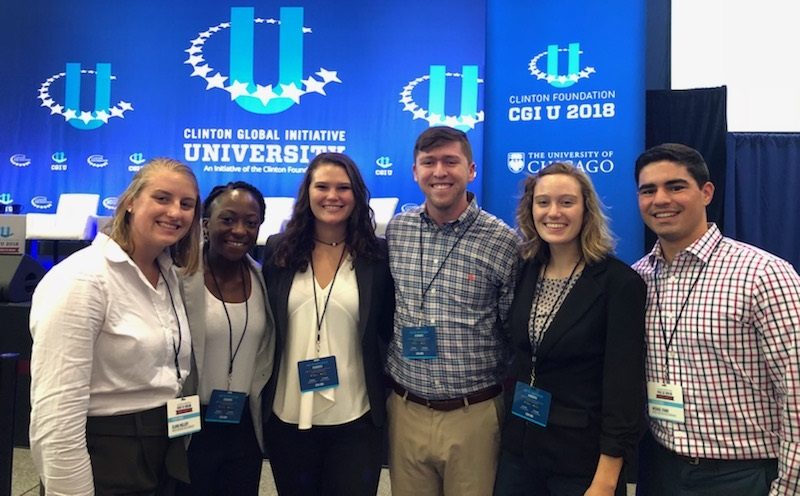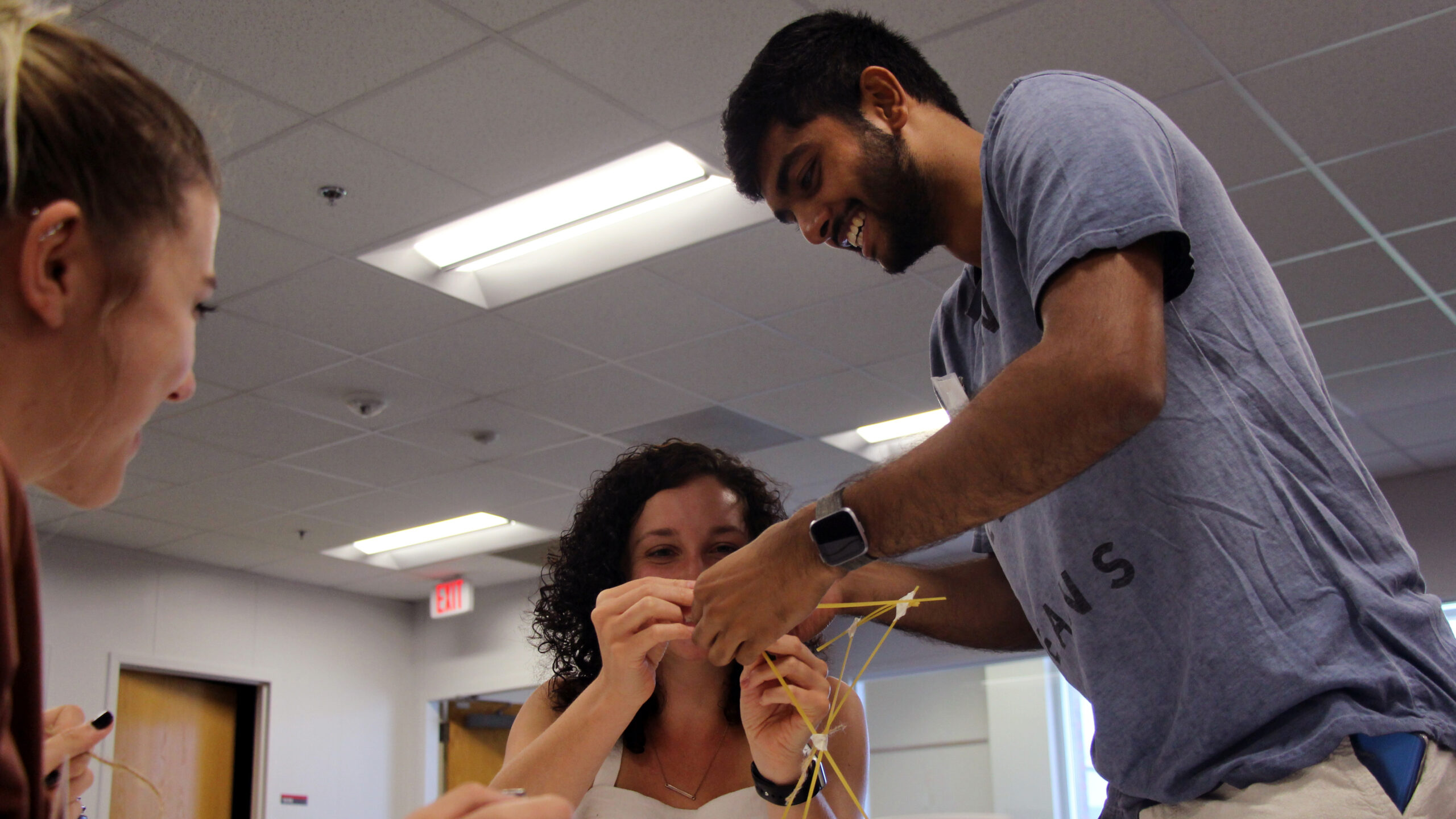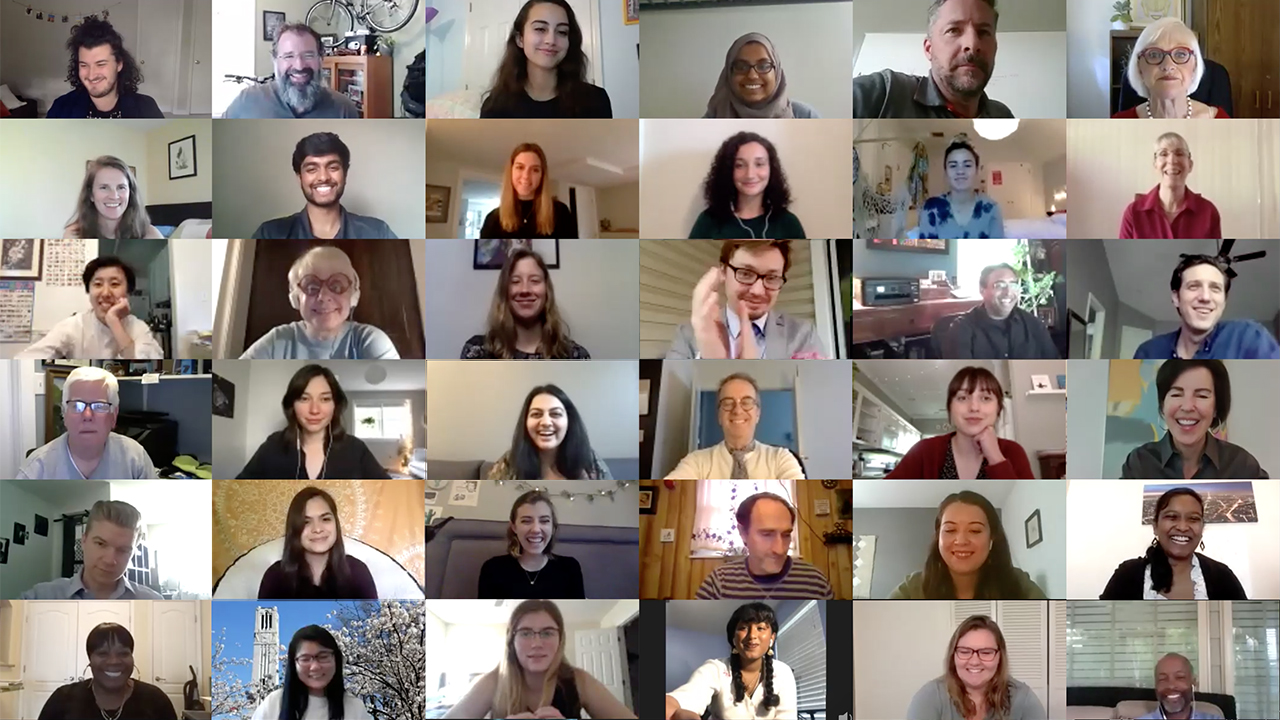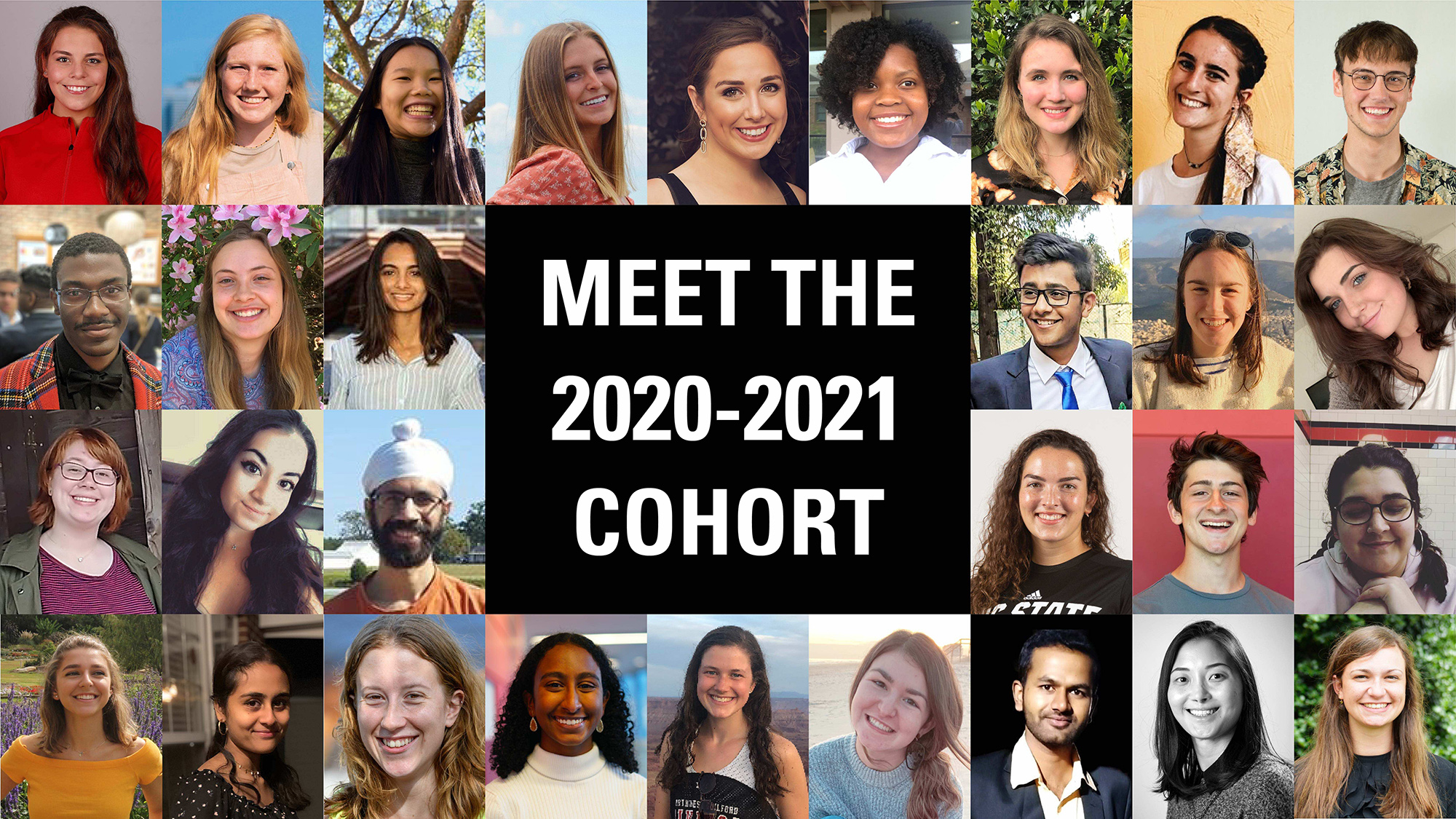Students Share Top Takeaways from this year’s Clinton Global Initiative University Conference

This year, six bright and ambitious students from NC State had the opportunity to engage with public policy leaders and change makers at the annual Clinton Global Initiative University (CGI U) conference on October 19-21, 2018. Held annually at a member institution, CGI U engages young leaders who are solving today’s problems through new, measurable, and specific “Commitments to Action.” Making these commitments are a prerequisite for a student to attend the conference; however, actions toward building upon these promises are maintained year-round.
For the six student attendees from NC State, these commitments are personal and timely. Here are their top takeaways from the experience:
Fumi Agboola
“CGI U provides a unique opportunity for students to connect with change makers and dreamers around the world. It was an honor to speak with people that are creating projects and initiatives to better their community and improve the wellbeing of humanity. I want to make a difference in the world, and it was encouraging to know that there are others like me, that are not waiting until they graduate or later on in their career, but are to create the change they want to see now. “
Fumi Agboola is committed to creating economic opportunities for girls and women to sell African clothing and products in Zambia. She wants to create a nonprofit organization or for profit social enterprise to help train women in selling their products. In addition to training women, she would like to provide microloans to help women start their own initiatives. This initiative is expected to boost the local economy and benefit women and their families.
Adrian Teegarden
“Overall, the event gave me hope that this many driven and intelligent students were working towards making the world a better place, despite all of the depressing coverage of current leadership in Washington, continuing racial and gender inequalities and violence here and globally, and the impending climate crisis.”
Hampton Clark:
“I found CGI U inspirational and informative. I heard from both private and public sector leaders such as the president of the ACLU and Hillary Clinton speak on creating societal change. I was inspired as I met students from all around the world working on innovative projects.”
In 2017, Hampton Clark and Adrian Teegarden committed to empower Haitian communities by creating recycling technology to help clean up beaches and to bolster local economies. Hampton and Adrian have already worked on a prototype for a low tech, portable recycling machine and have created a social and environmental impact assessment. Their partner, OceanWorks, is a company currently using recycled ocean plastic to manufacture sustainable buttons and sunglasses frames. They plan to partner with Ramase Lajan, a Haitian recycling program and expect to see beaches that are 50% cleaner. They also expect Haitians who work for this program to make 25% more than their peers.
Lindsay Wrege:
“My biggest takeaway from my time at CGI was the impact that students are able to make just as students. It was so impactful to hear about all of the different problems in the world that students are actively working to combat. Both talking to other students throughout the weekend as well as listening to student presenters, it was inspiring.”
Michael Evans:
“My biggest takeaway was excitement for the future of this generation. Everyone that I talked to at the conference had an extremely impressive project, and they were all in it for the right reasons. People are doing a lot of great work to improve their local communities, and I think we will start to see results in the coming years as more of these projects are developed.”
In 2018, Lindsay Wrege, Elise Romola, and Michael Evans committed to creating 321 Coffee, a nonprofit whose mission is to change the unconscious bias society has developed towards the special needs community. It is currently using pop-up coffee shops operated by these individuals to display their biggest strengths. 321 Coffee hopes to open a storefront near North Carolina State University’s campus and eventually expand to other college campuses. They have developed partnerships with Gigi’s Playhouse, an organization that provides 321 Coffee with special needs volunteer staff, and Oak City Roasters, a local bean-roaster that employs Autistic individuals.
Claire Mellott
“…Another takeaway was the importance of insider knowledge and research when conducting a program. I have realized this before, but seeing young leaders talk about it really made it apparent. No one should expect to just walk into a community to fix it; you need to work with the community and understand their needs in order to enact real change. They have to want help.”
Claire is working to address the food and housing insecurity among students on NC State’s campus. Based on a research project conducted by NC State faculty, 14% of students had experienced low or very low food security over the past 30 days, and 9.6% of students had experienced homelessness over the past 12 months. This issue is important to Claire because she believes that NC State’s campus is a community, and that everyone should have access to the resources they need, so they do not have to worry about their basic needs and can focus on their education. Claire anticipates that it will be challenging to connect and communicate with these students in need, based on their understandable discretion about their basic need insecurities.
This year’s cohort of students was the largest ever from the Institute for Nonprofits. If you’d like the opportunity to attend next year in the fall of 2019, contact NC State Social Entrepreneurship and Innovation at the Institute for Nonprofits (socentprogram@ncsu.edu).
- Categories:


